5 Feng Shui bedroom mistakes – and the ways to swerve them
Don’t make the errors Feng Shui experts see in bedrooms. These are the common mistakes, and the remedies for them
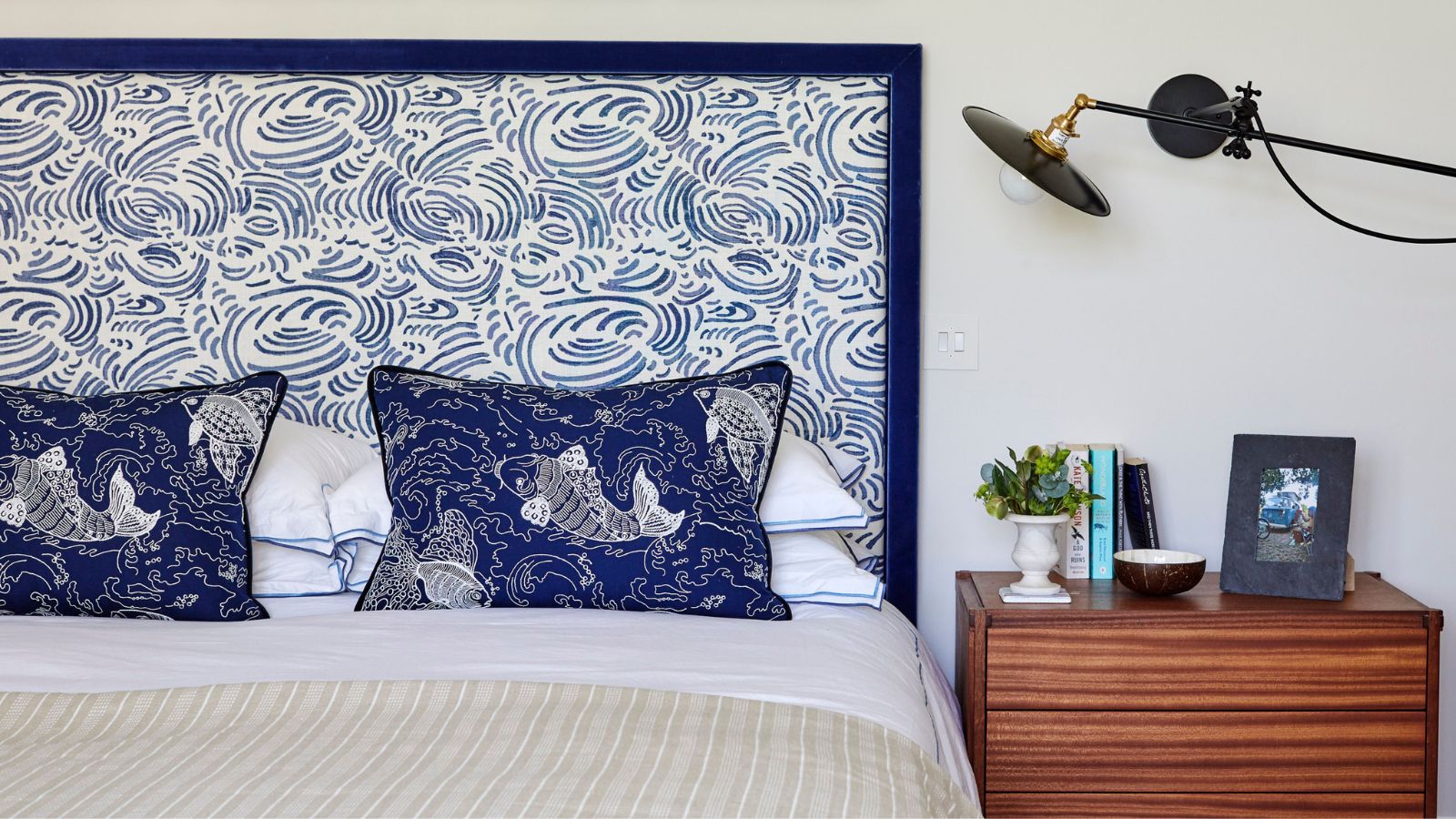

Make the Feng Shui bedroom mistakes the experts often see, and your room won’t prove to be the relaxing haven that advocates of the ancient art say can be yours if you follow its principles.
Bedroom Feng Shui promises a sleep space that can contribute to your wellbeing, helping you feel comfortable and rested and ready for the day ahead. After all, the meaning of Feng Shui – literally ‘wind’ and ‘water’ – is about achieving harmony and balance by arranging environments and objects and harmony and balance are ultra desirable in a bedroom.
Here, Feng Shui experts reveal the mistakes that most often compromise bedrooms so that you can avoid them and instead harness and encourage positive energies in your room.
5 Feng Shui bedroom mistakes to avoid
Following Feng Shui bedroom layout principles are critical to creating the best energy flow in the room, as is understanding the precepts of good Feng Shui furniture placement. But what are the traps those using feng shui fundamentals fall into when it comes to the bedroom? This is what the experts say.
1. Bed not in the commanding position
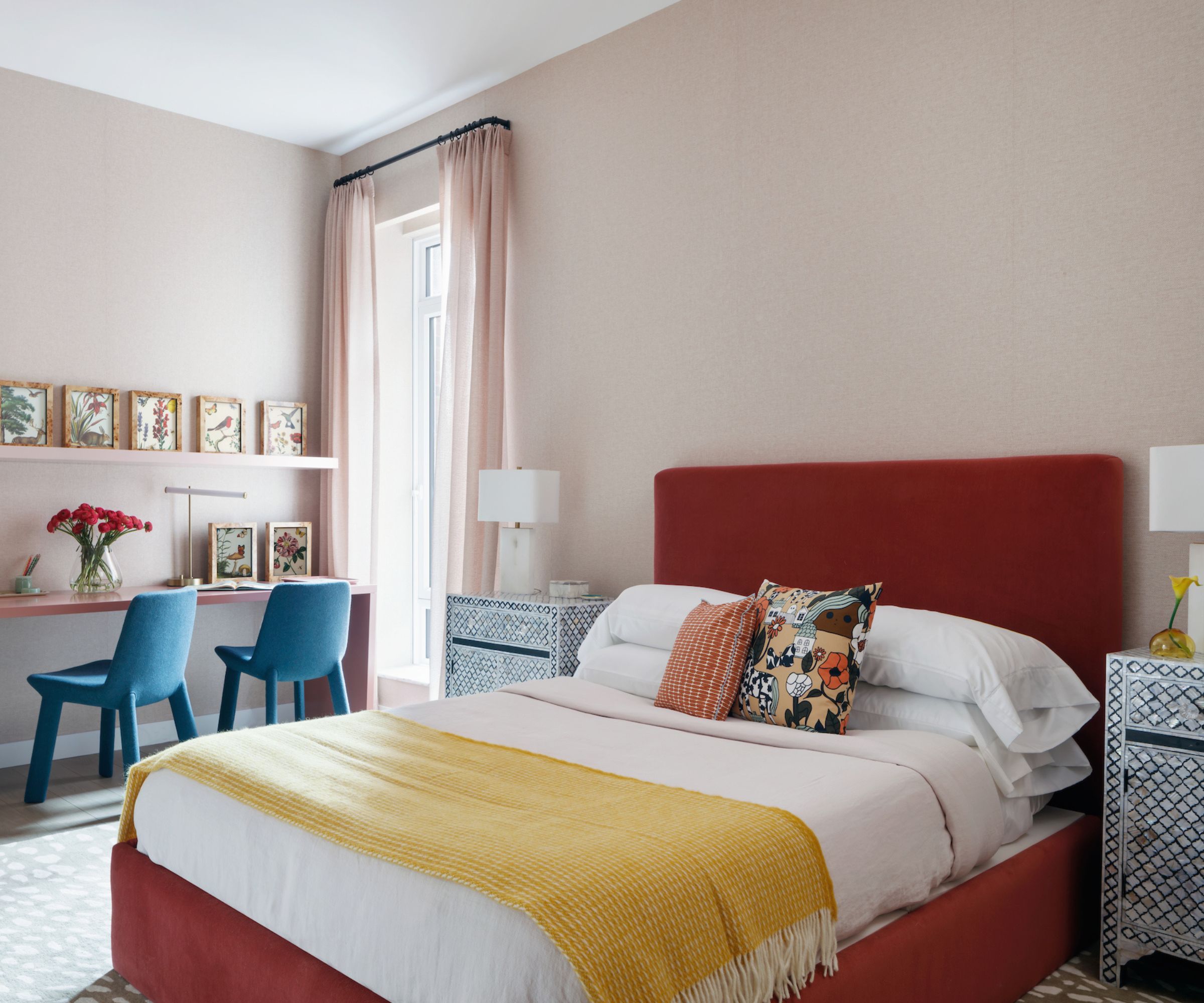
Getting Feng Shui bed placement wrong is a common error. ‘Something that may become a challenge would be to have a bed that is positioned out of the commanding position,’ says Anjie Cho, New York-based interior architect, feng shui advisor, and author.
‘The commanding position governs how you would position your bed in your bedroom and you want to be able to set it up so you can see the door without being directly in line with the door,’ she explains.
‘You want the headboard of the bed against a solid wall and you don’t want your feet pointing out the door which would be in the so-called coffin position – when you’re laying in bed with your feet directly pointing out of the door. The ideal position would usually be diagonal from the door so when you’re laying in bed you can see the door clearly.’
Note that a wall with a window won’t do. ‘The bed should not have the headboard up against a window,’ says Steve Kodad, feng shui master and co-owner/trainer of the Intrinsic School of Feng Shui. ‘Protecting the head of the household/the breadwinner etc is of utmost importance.’
2. Bed without headboard
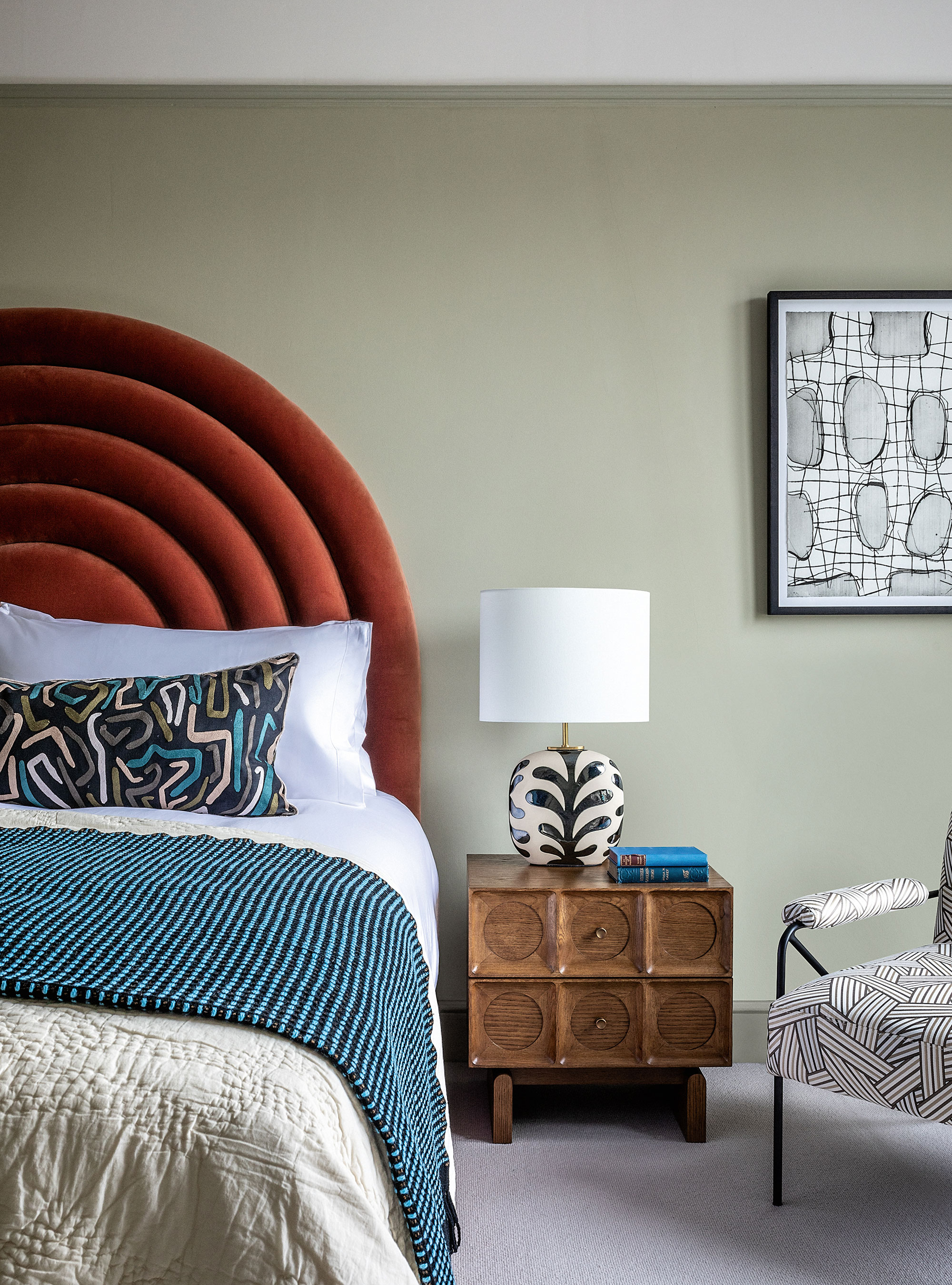
Choosing to sleep in a bed without a headboard is considered something to avoid. The reasons why a headboard is important for Feng Shui? ‘Ideally, in Feng Shui, you have a headboard to provide support and to provide balance in a relationship,’ explains Anjie Cho.
‘A headboard is really recommended to give you support – it’s like your backbone, the structure that holds your back, the mountain behind you that protects you.’
3. Not showing pairs
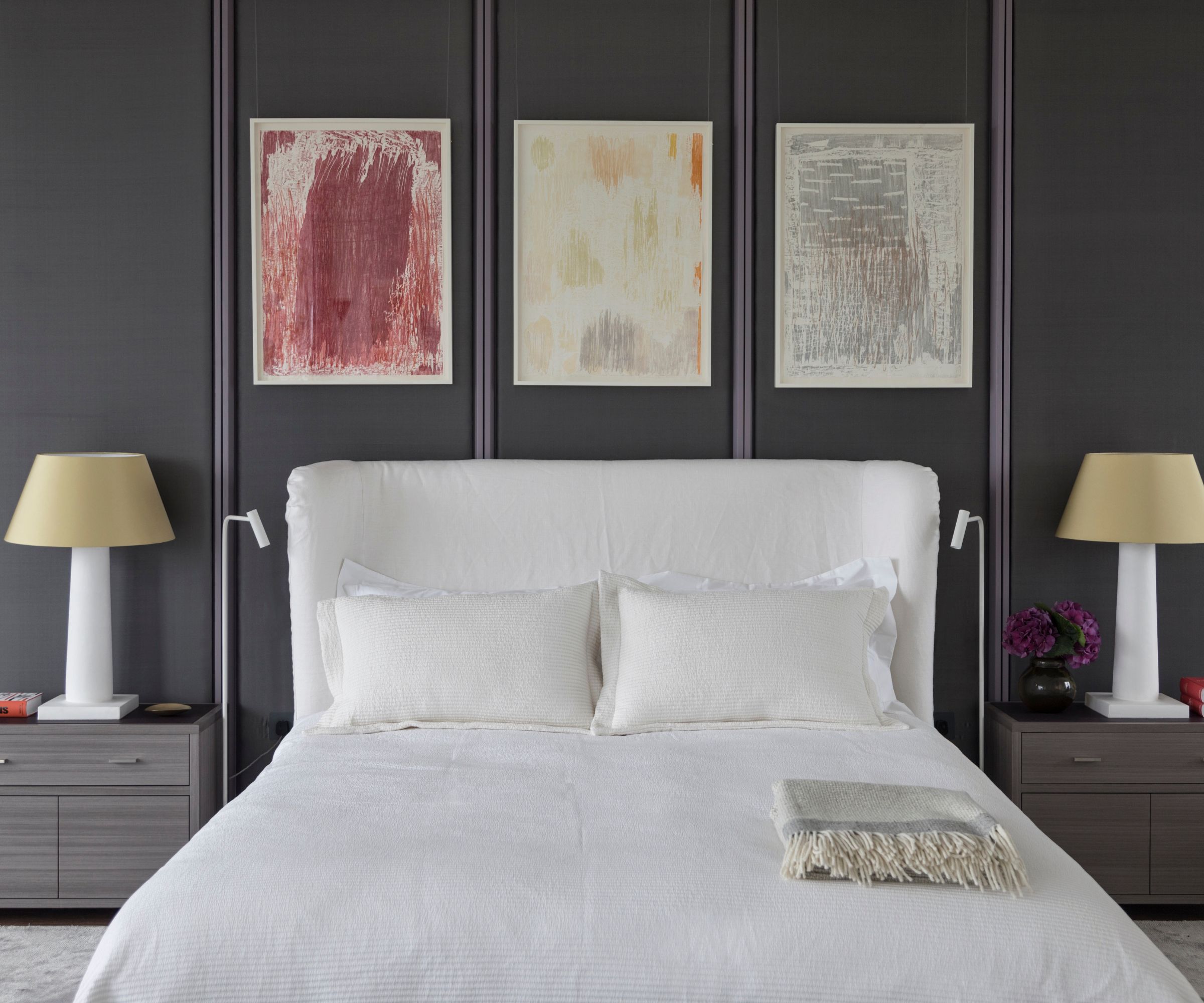
Think in pairs to create good Feng Shui in your home and to avoid making a mistake in the bedroom. ‘In Feng Shui, we want to show equality for the significant other,’ explains Steve Kodad. ‘A bed should never be shoved up against a wall. This makes it difficult for a person to get up without disturbing the other.
‘Both sides of the bed should have fairly identical lamps and tables (equal),’ he continues. ‘The master is really the only room we try to make symmetrical. It does not matter if an individual is single at this time. A bedroom should be inviting to the possibility of sharing your life with another. When it is not set up correctly, a person is showing the world they have no interest. Paintings of single people in a master emphasize being and staying alone.’
4. Under-bed clutter
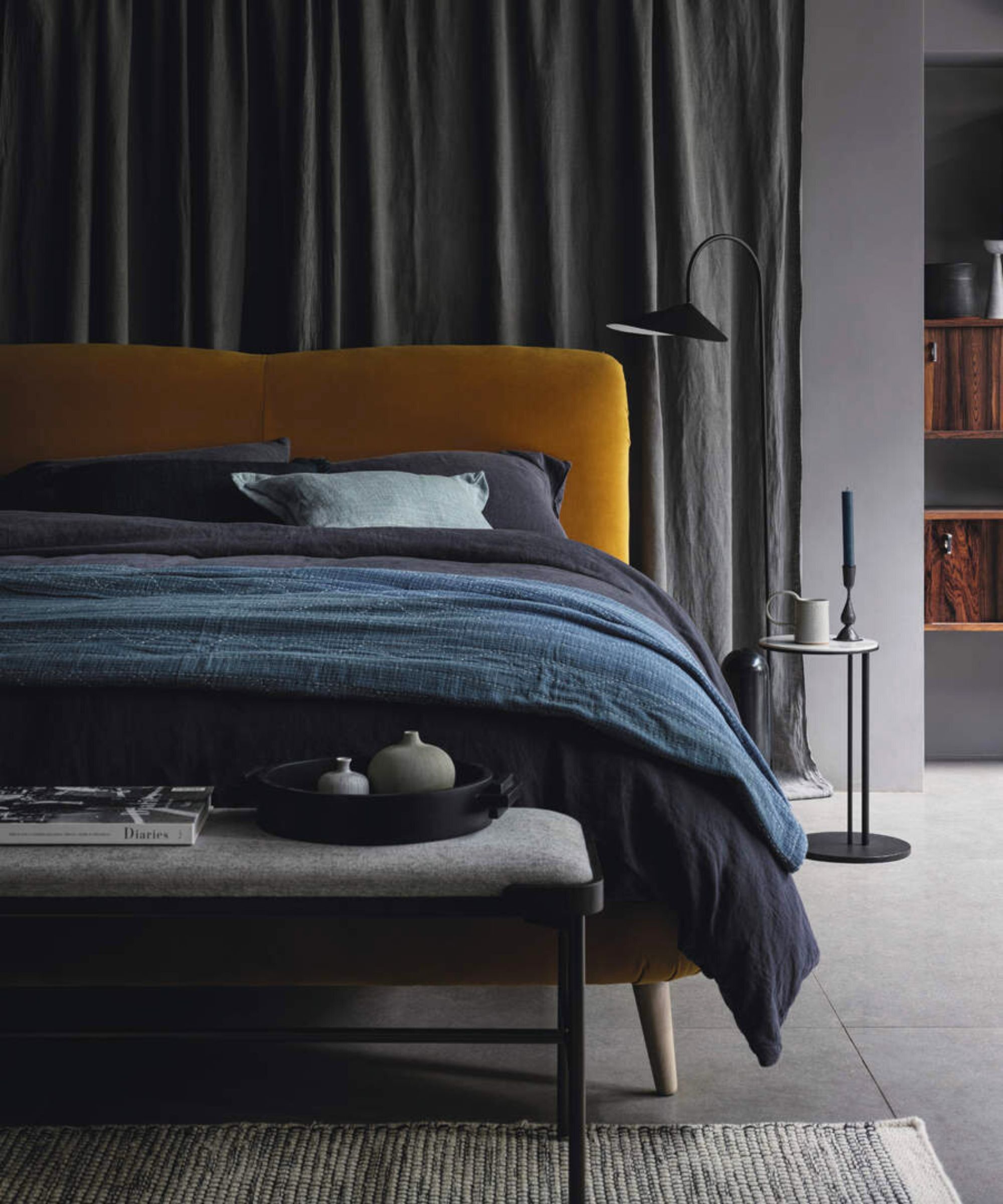
It’s important not to have clutter below your bed in feng shui. ‘Avoid having a tremendous amount of stuff under the bed,’ says Anjie Cho. ‘It’s ideal to have absolutely nothing under the bed and have a bed with legs so that the air and the chi, the life force energy, can flow all around you while you’re sleeping – that’s very healing.
Circumstances might mean that the area under the bed is valuable real estate when organizing a bedroom, so what then? ‘If you have to have storage and there’s absolutely no way you can live without it, then ideally you would set up your bed to have sleep-related items stored under it like blankets and clothes,’ says Anjie.
‘You want to avoid any harsh, sharp, or emotionally charged items because when you’re sleeping in bed you are in a passive state and you’re absorbing all the chi, all the energy around you, so you want to have things that are really soft. Avoid books, avoid letters from exes, sharp things or too many active things like shoes under the bed.’
5. Poison arrows
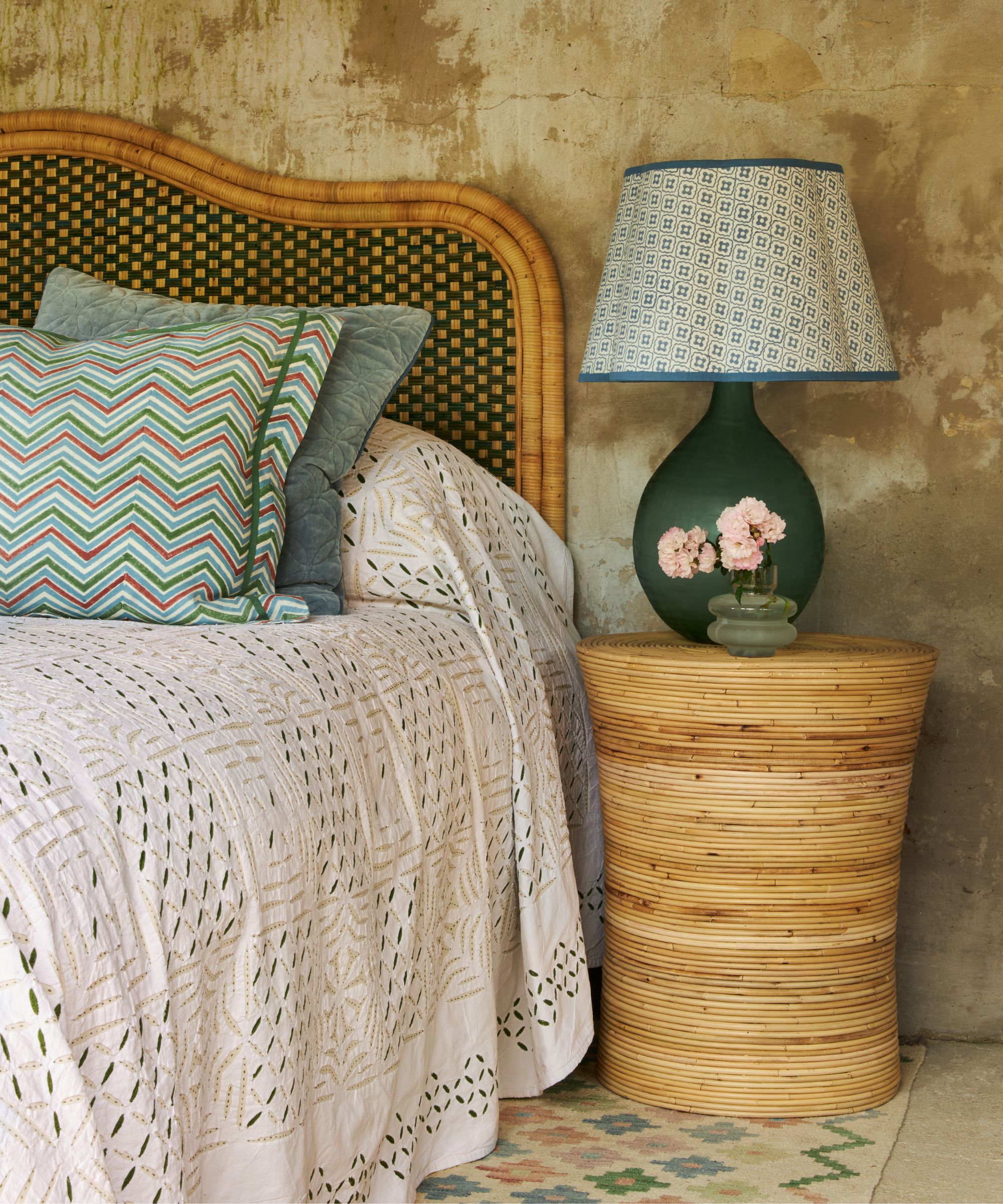
Poison arrows (of the metaphorical type in this case) should not be present in a bedroom. ‘Poison arrows are a big problem anywhere in the house,’ explains Steve Kodad. ‘In the bedroom, they are especially worrisome.
‘The edge of the dresser, a protruding corner, and other pieces “pointing” at where a person lays their head when sleeping can be the cause of a bad night’s sleep or, even worse, a health problem.
‘The way to handle a poison arrow is to, one, move it out of the room; two, move it so the sharp edge does not directly line up with the head; or, three, “soften” it. By softening it, we are placing an obstacle between the sharp edge (poison arrow) and where it points. For example, a potted plant is often placed next to the edge. Fabric can be used also to take away the sharpness. A canopy may be used to shelter someone. Folks often are more restless in a four-column bed or even with a ceiling fan above their head. Anything that “points” at where a person is for seven to nine hours is considered a possible threat.’
FAQs
What shouldn’t you put in your bedroom in Feng Shui?
The list of the unluckiest items to have in your home in Feng Shui applies to bedrooms as well as everywhere else and includes empty vases that are on display, dried plants, and cacti, along with some things we hope you wouldn’t have there in any case such as dead plants, broken objects, and stagnant water and fish tanks. One item some Feng Shui practitioners caution against is a mirror. However, it’s essential in the bedroom for most of us, and following Feng Shui mirror rules generally and understanding where mirrors should be placed in a bedroom for Feng Shui will allow you to include one and still create a peaceful and rejuvenating room.
If it seems a little harsh to refer to mistakes when it comes to Feng Shui, you might like to conceive of them as expert Anjie Cho does. ‘I’m not going to use the word mistakes personally because there are no Feng Shui mistakes,’ she says. ‘But there are some things to watch out for and some things that may become challenges in someone’s home.’ And if you prefer a positive approach to your interiors, understanding how to Feng Shui a bedroom for good luck could be the ideal way to approach the room.
Sign up to the Homes & Gardens newsletter
Design expertise in your inbox – from inspiring decorating ideas and beautiful celebrity homes to practical gardening advice and shopping round-ups.

Sarah is a freelance journalist and editor. Previously executive editor of Ideal Home, she’s specialized in interiors, property and gardens for over 20 years, and covers interior design, house design, gardens, and cleaning and organizing a home for Homes & Gardens. She’s written for websites, including Houzz, Channel 4’s flagship website, 4Homes, and Future’s T3; national newspapers, including The Guardian; and magazines including Future’s Country Homes & Interiors, Homebuilding & Renovating, Period Living, and Style at Home, as well as House Beautiful, Good Homes, Grand Designs, Homes & Antiques, LandLove and The English Home among others. It’s no big surprise that she likes to put what she writes about into practice, and is a serial house renovator.
-
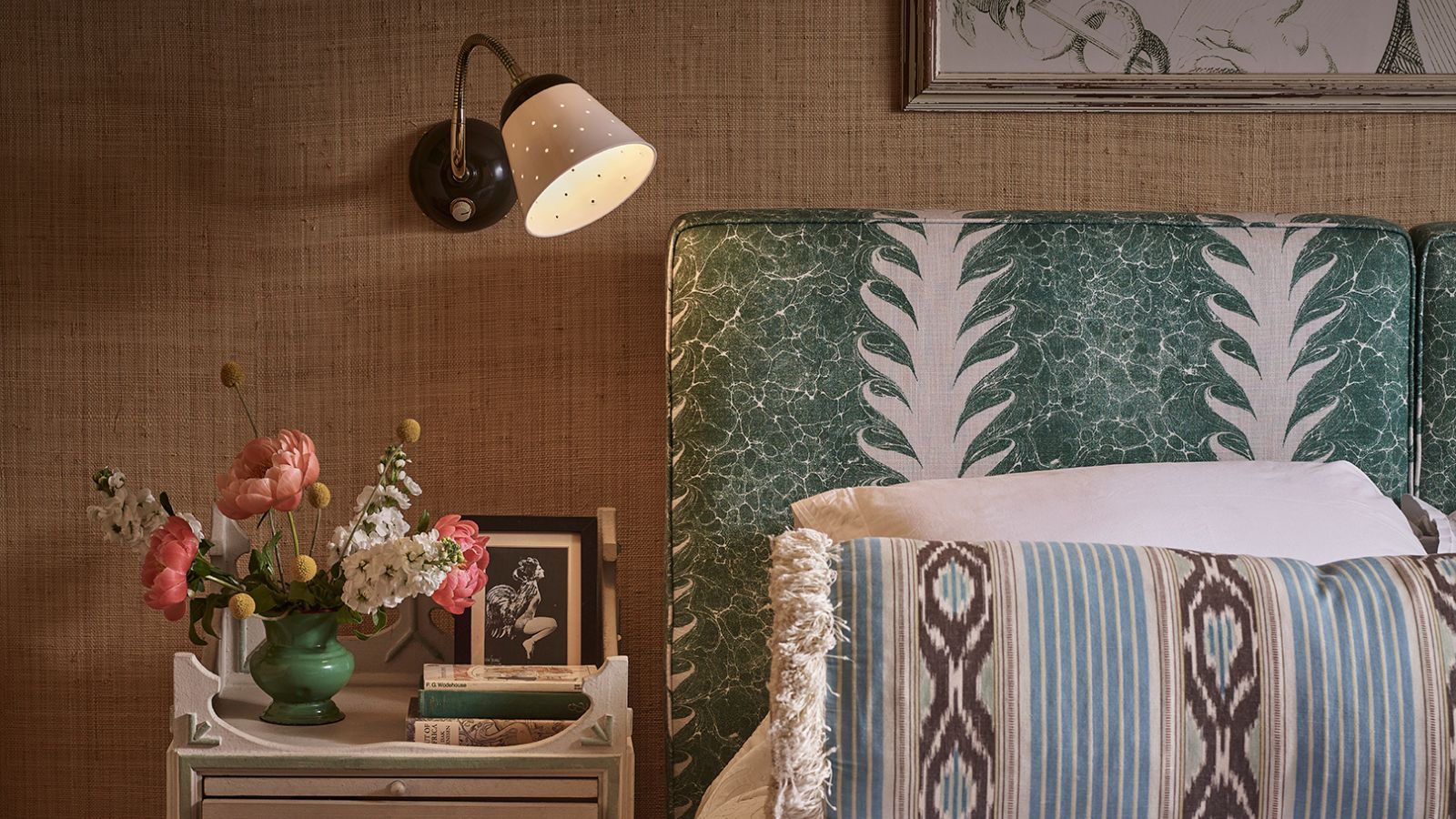 Do you need to turn the lights off when you leave a room? Experts have ended this time-honored debate once and for all
Do you need to turn the lights off when you leave a room? Experts have ended this time-honored debate once and for allOn or off? We delve into the details of this age-old dispute
By Chiana Dickson
-
 This Tudor decorating technique brings a 'cocooning' feel to Jon Bon Jovi's living room – but designers warn you need to be brave to follow his example
This Tudor decorating technique brings a 'cocooning' feel to Jon Bon Jovi's living room – but designers warn you need to be brave to follow his exampleThe singer uses wood to design a room that feels 'welcoming and rich in materiality,' but this century-old method comes with a warning
By Megan Slack